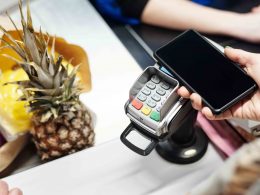By Mark Kawalya
In Africa, the formula for improving standards of living is clearly marked. The more access people have to energy, the more opportunities in life come their way. For example, take Agnes Wangiru who sells French fries in Embu County in Kenya. She relied on a kerosene lamp to enable her to carry on business after sunset. A sales agent convinced her to buy d.lights’ D30 solar system for her business, which enabled her to offer phone charging as an additional service, boosting her earnings from $5 to $15 per day. Within a short period, Agnes had advanced high up what is called the Energy Access Ladder.
According to research on off-grid families, a little improvement in energy access tremendously affects their well-being. An individual’s Human Development Index score, which considers aspects like life expectancy, income and education, can double with increased energy consumption per year. Agnes’ story clearly illustrates this.
As early as 2009, d.light began working to raise the 2.3 billion people in developing countries living without electricity up the energy access ladder in a sustainable manner.
Nearly 13 years later, the firm has impacted more than 70 million people with its solar products. With a wide product portfolio, families can acquire the solar lamps and solar systems that they can afford. Using its products, d.light hopes, households may move away from using kerosene, boost their incomes and upgrade to solar products that offer more features, better power capacity and improve their quality of life especially as kerosene burning has a negative impact on health.
John Otieno of Nakuru, a fish seller, experienced a tremendous increase in his sales since acquiring a solar lantern. “The kerosene lantern used to make my fish smell like kerosene and the clients were not able to see the fish well when it was getting dark which was bad for my business. Now my stock of fish stays fresh and my clients can identify me from a distance by the bright light of the S20 lantern,” he says.
The firm estimates that d.light customers save an average of $310 each year after making the shift from kerosene to solar. This allocates more resources for things like medical care, food and other necessities. Furthermore, households and businesses gain 16% more light hours.
The start-up also claims to have eliminated more than 3.78 million tons of CO2 that would have emanated from the burning of kerosene.








